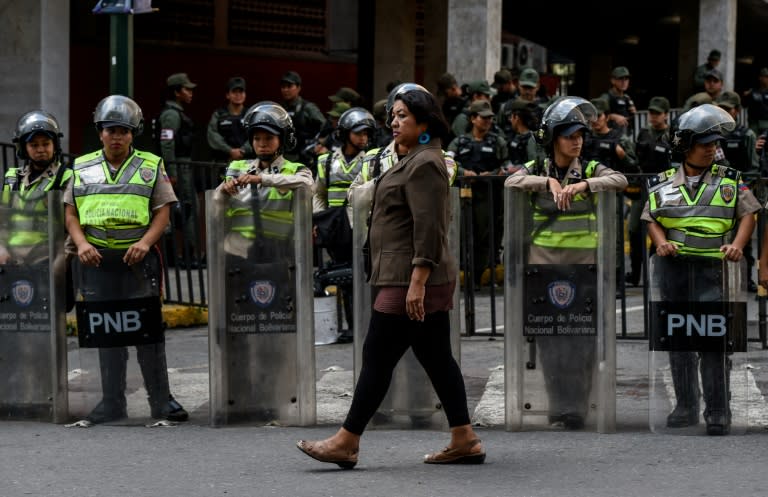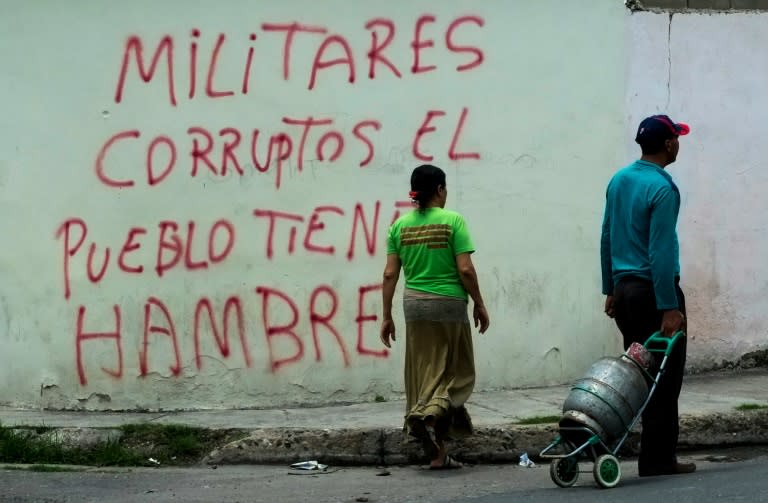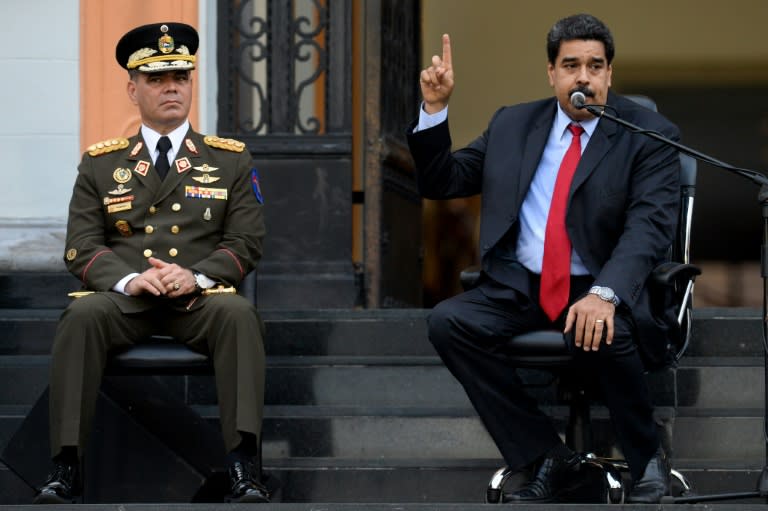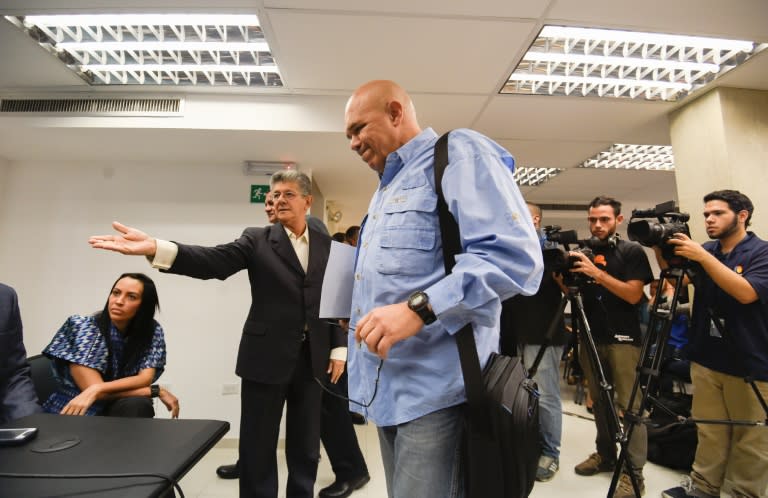Venezuela govt seeks to ban opposition over recall 'fraud'
The Venezuelan government asked electoral authorities Tuesday to ban the opposition coalition seeking to oust President Nicolas Maduro in a recall vote, accusing them of massive fraud. Ratcheting up the tension in a country pushed to the brink of collapse by an economic crisis, Maduro's camp hit back with a vengeance on the same day the opposition was hoping to get a green light to go ahead with its bid to hold a recall referendum. "We have just asked for the cancellation of the registration of the Democratic Unity Roundtable (MUD), for being involved in the worst vote fraud in the country's history," said Jorge Rodriguez, Maduro's designated aide to monitor the recall process. He accused the opposition of including the names of thousands of dead people, convicts and minors in a petition submitted in May with 1.8 million signatures requesting a recall vote. The opposition has denied such charges, accusing the authorities of stalling. Tuesday was the final day for the National Electoral Council (CNE) to rule whether the opposition successfully collected at least 200,000 valid signatures, the first stage of the long and winding recall procedures. Near the end of the day, the CNE said it would only meet Monday to examine its auditors' report on the petition. It did not say when it would announce its ruling. "The electoral authority will not accept pressure," it said in a statement. "It is acting in strict compliance with the law." Maduro's opponents are racing to complete the process by January 10, the cutoff to trigger new elections. After that date -- four years into the president's six-year term -- a successful recall vote would simply transfer power to Maduro's hand-picked vice president. - Off to farm - Venezuela has sunk into crisis as global prices for its main export, oil, have collapsed. The economy is set to contract eight percent this year, its third year of recession, a UN panel forecast Tuesday. Food and medicine shortages, hyperinflation, looting, lynching and mounting chaos are fueling growing discontent with Maduro, who has declared a state of emergency. His labor ministry used emergency powers Tuesday to issue a resolution declaring that private companies must send their employees to work on government agriculture programs aimed at curbing food shortages. Firms whose workers are drafted into the programs will not have to pay their wages, but will have to cover their social security contributions. No timeframe was given for the resolution, which was described as temporary. It comes after Maduro gave his military sweeping powers over food production and distribution earlier this month. Maduro blames Venezuela's crisis on an "economic war" waged by wealthy elites unhappy with his rule. Opponents say the failure of his own socialist policies is to blame. - Waiting game? - A recent poll found 64 percent of Venezuelans would vote to remove Maduro in a referendum. But time is not on the opposition's side. Even if the CNE validates the initial recall petition, the opposition will still have to collect another four million signatures, or 20 percent of the electorate, in just three days. If those signatures are accepted, it would force a recall referendum. To win it, Maduro's opponents would need more votes than he won the election with in 2013 -- around 7.5 million. Maduro's camp has plenty of ways to stall. Besides seeking to have MUD declared illegal, Maduro's allies have filed more than 8,000 legal challenges to the referendum drive with prosecutors and the Supreme Court. - Protests loom - Venezuela's economic tailspin is threatening Maduro and the leftist "revolution" launched in 1999 by his late predecessor and mentor, Hugo Chavez. The opposition's referendum push comes after it won legislative elections in December, only to find its power stymied by a Supreme Court it condemns as a Maduro lapdog. Opposition leaders have called nationwide demonstrations for Wednesday to pressure the government. But electoral authorities warned they would halt the referendum process in the event of violence.






